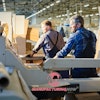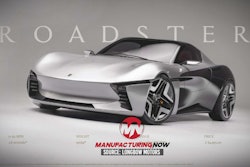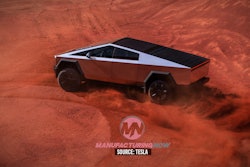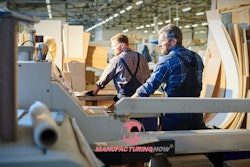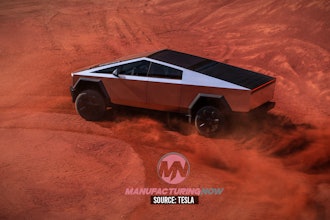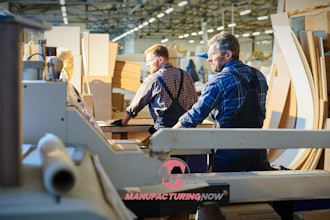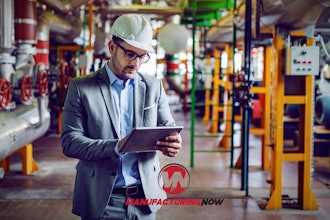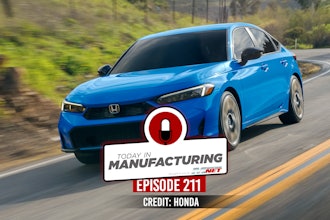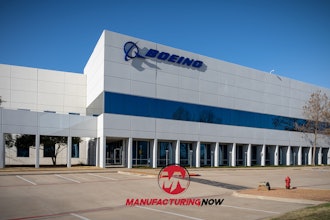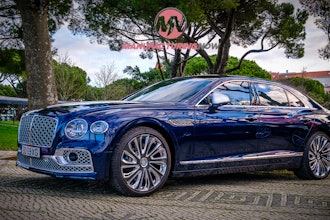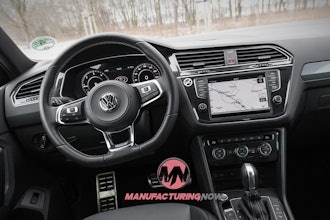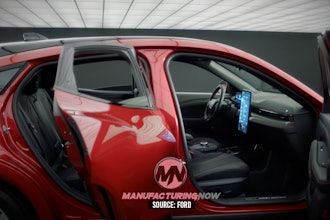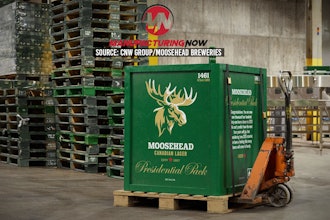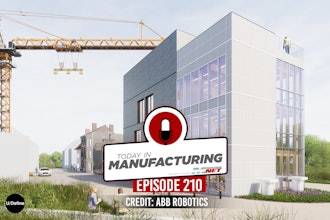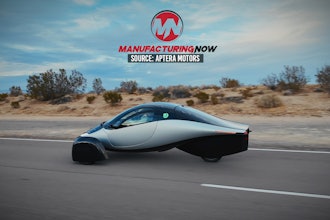Although it doesn’t compete directly with major manufacturers like Michelin, Bridgestone and Goodyear, LEGO is still the world’s largest tire maker. At least in terms of volume, not size.
According to Guinness World Records, LEGO has been pumping out about 306 million rubber tires each year since 2006. The company peaked in 2010 when the total reached 381 million tires, way more than the nearly 200 million tires Michelin produced in 2024.
Most Read on IEN:
Like its full-size tire-making peers, LEGO is also concerned with sustainability. And that’s why the Danish toy giant said it’s turning to recycled materials for its tire production. It will be using a material that’s created by repurposing discarded ropes and nets from ocean vessels and then combining them with recycled engine oil.
LEGO said the new material will first show up in seven of its different tire pieces, with each containing at least 30% recycled material. The recycled material tires are already showing up in products and the company said it expects them to be used in about 120 different sets by the end of 2025.
Tires made from recycled fishing nets is just one brick in LEGO’s build toward sustainability. Since 2018, the company has used a plastic made from Brazilian sugarcane for some LEGO elements like minifigure accessories and botanical pieces. More than half of the sets produced by the company contain at least one component made from this material.
Beginning last year, LEGO started incorporating a material derived from artificial marble (like the stuff used in countertops) into its transparent elements including lightsabres and windows. The company said that once it fully transitions to the material, it will feature in more than 85% of its sets.
LEGO has also worked with its peers to buy e-methanol, a material produced by blending renewable energy with CO2 from bio-waste, which it will use for certain parts in the near future.
Click here to subscribe to our daily newsletter featuring breaking manufacturing industry news.
WEBVTT
X-TIMESTAMP-MAP=LOCAL:00:00:00.000,MPEGTS:0
00:00.239 --> 00:03.720
Although it doesn't compete directly with major
manufacturers like Michelin,
00:03.799 --> 00:07.880
Bridgestone, and Goodyear, Lego is still the
world's largest tire maker,
00:08.199 --> 00:12.279
at least in terms of volume, not size.
According to Guinness World Records,
00:12.479 --> 00:17.959
Lego has been pumping out about 306 million
rubber tires each year since 2006.
00:18.090 --> 00:21.850
The company peak.
In 2010, when the total reached 381 million
00:21.850 --> 00:27.360
tires, way more than the nearly 200 million
tires Michelin produced in 2024.
00:27.489 --> 00:32.400
Like its full size tirema piers, Lego is also
concerned with sustainability,
00:32.610 --> 00:37.130
and that's why the Danish toy giant said it's
turning to recycled materials for its tire
00:37.130 --> 00:40.009
production.
It will be used in a material that's created by
00:40.009 --> 00:45.419
repurposing discarded ropes and nets from ocean
vessels, and then combining them with recycled
00:45.419 --> 00:48.529
engine oil.
Lego said the new material will first show up
00:48.529 --> 00:54.020
in 7 of its different tire pieces, with each
containing at least 30% recycled material.
00:54.400 --> 00:58.009
The recycled material tires are already showing
up in products,
00:58.139 --> 01:04.330
and the company said it expects them to be used
in about 120 different sets by the end of 2025.
01:04.459 --> 01:10.260
Tires made from recycled fishing nets is just
one brick in Lego's build toward sustainability.
01:10.839 --> 01:17.050
Since 2018, the company has used a plastic made
from Brazilian sugar cane for some Lego
01:17.050 --> 01:20.559
elements like minifi accessories and botanical
pieces.
01:20.680 --> 01:24.760
More than half of the sets produced by the
company contain at least one component made
01:24.760 --> 01:28.480
from this material.
Beginning last year, Lego started incorporating
01:28.480 --> 01:33.599
a material derived from artificial marble, like
the stuff used in countertops into its
01:33.599 --> 01:36.839
transparent elements, including light sabers
and windows.
01:37.230 --> 01:40.690
The company said that once it fully transitions
to the material,
01:40.940 --> 01:46.379
it will feature in more than 85% of its sets.
Lego has also worked with its peers to buy
01:46.379 --> 01:52.489
e-ethanol, a material produced by blending
renewable energy with CO2 from bio waste,
01:52.660 --> 01:55.269
which it will use for certain parts in the near
future.
01:55.580 --> 01:57.699
I'm Ben Munson, and this is manufacturing now.


